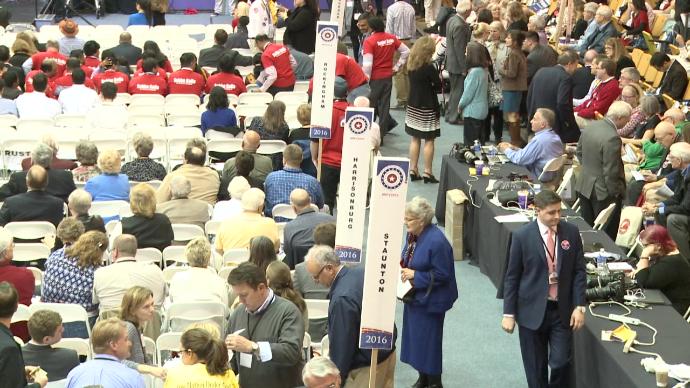Last winter and spring, with the seeming possibility of a contested Republican National Convention for the first time in at least 40 years, state Republican parties all over the country experienced difficult and often controversial processes for electing RNC delegates.
While the RNC has not yet moved to provide guidance or leadership to the states on ways to avoid similar controversies in the future, several state parties that experienced problems last year are currently working toward remedies. Among those is the Republican Party of Virginia, where for at least the past 44 years a committee of appointed party insiders has been responsible every presidential election year for hand picking a slate of at-large delegates to be rubber-stamped by the quadrennial state party convention. We wrote about the need to end this establishment-inspired practice last summer (“End the Slate” and “End the Slate – Part Two“).
The RPV State Central Committee is a volunteer organization that only meets four times a year, most years. It takes a while to get things done. At a meeting last summer, 8th District Representative Sandy Liddy Bourne got the ball rolling on this issue. Her motion was laid aside for further study by the organization’s Party Plan Committee. That Committee, chaired by 10th District Representative Eve-Marie Gleason, has now released its report outlining two options studied by the Committee, offering no recommendation one way or the other. The report is embedded below.
An amendment to the party’s Plan of Organization (i.e., its bylaws) requires a 3/4 supermajority. Right now, it is not clear that such a supermajority exists for either option. The most common concern we have heard expressed is about the unwieldy nature of having potentially dozens (maybe hundreds) of names on a single ballot to be voted on from the floor of the state convention. Others have expressed concerns that an amendment to the Plan would tie the hands of future State Central Committees in how they could draft their convention calls and draft rules. One potential alternative approach we’ve heard suggested is passage of a resolution against the slating of delegates like has been done traditionally.
What seems most like to emerge from tomorrow, however, is a decision to wait and handle the issue at a subsequent meeting. Unit chairmen, grassroots activists, and even members of the State Central Committee have not yet had a meaningful opportunity to study these options (which, incidentally, should have been included with the Call if they are to be adopted as party plan amendments). So, we’ll probably take a little bit more time and get a significantly greater amount of feedback and buy-in from the grassroots.
Although it may or may not be the case that a consensus emerges around one of these approaches tomorrow or in the coming days, here’s the good news: nearly everyone on the State Central Committee agrees that the method used for at least the past 44 years is no longer tenable. All that’s left is to figure out what replaces it.
We’ll be on hand at the meeting tomorrow in Richmond to report live on the debate as it unfolds. As we like to say, stay tuned.

